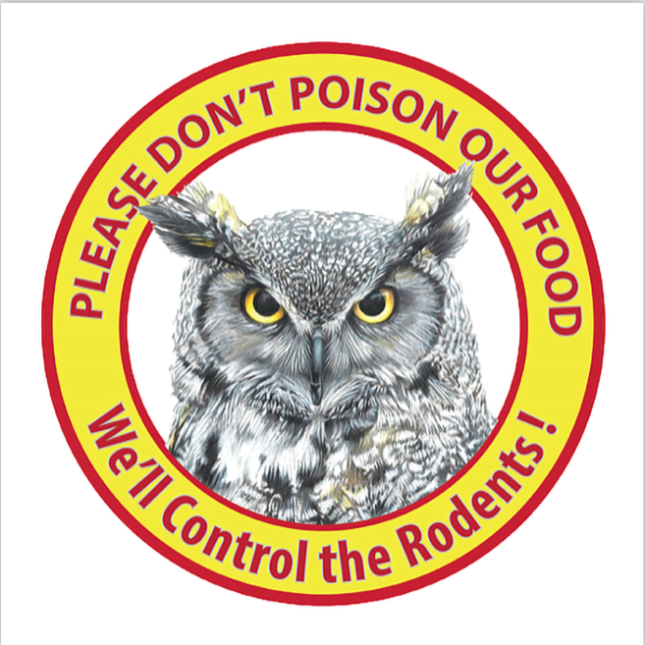
Poisons used to control rats and mice are killing eagles, hawks and owls!
There have been several high-profile stories in the news recently of birds of prey and other wildlife becoming extremely sick or even dying after eating rodents poisoned with rat poison. In March a much loved Bald Eagle known as MK was brought to the New England Wildlife Center’s hospital on Cape Cod after being found on the ground in the Arlington Cemetery where she has nested for several years with her mate KZ. Her veterinary team worked tirelessly to save MK’s life, but she succumbed to second generation anticoagulant rodenticide poisoning or SGARS – she bled internally to death after ingesting poisoned rodents.
Rat poison kills by preventing blood from clotting. Animals that ingest rat poison or eat animals that ingested rat poison die a slow and painful death from internal bleeding or they die from injuries such as cuts that won’t clot – causing the animal to bleed to death.
When homeowners, business owners or pest control companies put out rat poison to kill unwanted mice or rats, those “pests” can take up to a day to die, while in the meantime remaining in the food chain where they are often eaten by birds of prey such as eagles, hawks and owls or other animals such as foxes, coyotes, bobcats and even house cats.
About a week before MK was found sick on the ground in Arlington, a Barred Owl was rescued from Faneuil Hall in Boston where it had been found bleeding from the mouth. The owl was taken to Cape Ann Wildlife in Gloucester where it was diagnosed and treated for rat poisoning. The owl, known as Owen survived but lost an eye due to the poisoning. He did pass a flight-hunting test and was released back into the wild – far from the Faneuil Hall area where unfortunately restaurants and other establishments are using rat poison stations.
Last year two very sick young foxes (found separately) were brought to the Newhouse Wildlife Rescue in Chelmsford also suffering from rat poisoning. Hawkins and Milo had eaten poisoned prey. After weeks of care, the bonded pair survived and were released in a forest where they hopefully will never again come in contact with rat poison.
In a recent study of Red-tailed Hawks in their care, Tufts Wildlife Clinic found that 100% of them had been exposed to some level of rat poison! You can read about that here:
A bill seeking to limit the use of anticoagulant rodenticides passed in the Massachusetts House, but has been languishing in the Senate. Here’s some background on that:
Here at our Sudbury, MA and Woburn, MA stores we are collecting donations to be sent to Cape Ann Wildlife and Newhouse Wildlife Rescue to thank them for the work they do everyday rescuing and rehabilitating birds and wildlife. To thank those who donate we are offering a Please Don’t Poison Our Food window cling featuring a Great Horned Owl. Susan Maranhao, owner of both stores will match all donations.
Please help us spread the word about the danger to birds and wildlife from rat poison!
Thank you,

